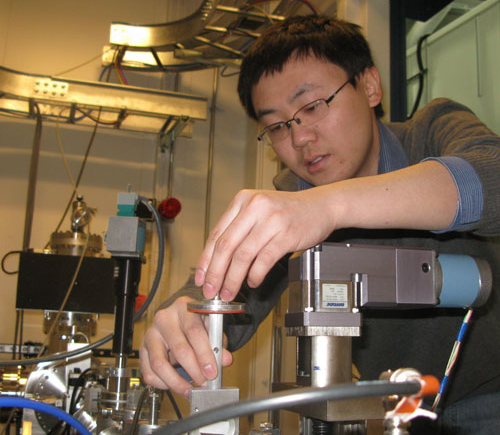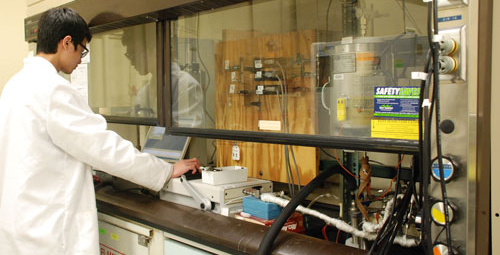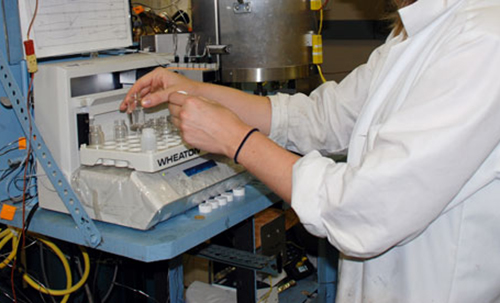Heightened public interest in cleaner air, along with increasingly stringent regulations on transportation fuel quality, has resulted in worldwide research and development efforts to find ways for more efficient production of cleaner fuels that contain ultra-low sulfur or zero sulfur and low aromatics. The mission of the Clean Fuels and Catalysis (CFC) Program is to promote comprehensive, efficient, and environmentally friendly utilization of hydrocarbon resources for making and using clean fuels and chemicals through catalytic and chemical research.
CFC research focuses on ultra-clean fuels, chemicals, applied catalysis, reaction chemistry, new materials, and new processing methods related to energy conversion, energy utilization, chemical processing, and environmental protection. The production of clean fuels and chemicals from coal, petroleum, and natural gas requires a thorough understanding of the chemical and physical properties of the starting feedstock and how to tailor processing and/or reaction chemistry to produce a clean fuel or chemical with specific properties. The Clean Fuels and Catalysis research at the EMS Energy Institute garners international attention and attracts a diverse mix of scholars who collaborate to develop a wide range of clean fuels and chemicals using environmentally benign technologies.





